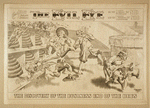This third installment of quotes focusing on the boundary between life and death (and the second installment of quotes from The Harlem Book of the Dead) features a portion of the interview between Camille Billops and James Van der Zee conducted in his 91st year of life. Van Der Zee not only photographed dead strangers, but also his own mother (who died at seventy-five) and daughter (who died at the age of sixteen). If Van der Zee's responses seem strange to modern ears for their pragmatic viewpoint towards life and death, they also offer a strange comfort in their refusal to make too much of either of these states of being--or perhaps too much of a distinction between either state of being.
The conversation begins with this comment from Van Der Zee:
"Why should a spirited mortal feel proud, when like a swift, fleet meteor or fast-flying cloud, man passes through life to his rest in the grave?" They've asked me, "How do I feel?" I told them that there's nothing to it; you do things the way they ought to be done. I don't see anything to be proud about. It's pretty difficult for a man to feel proud when knowing as he does the short space of time he's here and all paths, even those of our greatest glory, lead but to the grave. So it is very difficult to feel proud when Death says this. You're here today and gone sometimes today."
His description of his feelings about the death of his one-year old son, Emile seems to illustrate a surprising detachment, and yet this word does not capture the whole of his sentiment:
"I think he came when we was living in the Victoria Apartments on Lenox Avenue [in New York City] at that time. He only lived a year, and I didn't get a chance to know too much about him."
Not troubled by his role, he relates a mildly humorous dream that he had about a photographic subject. The humor emanates from his own response to the curious behavior of the subject. But in referencing a dream world Van Der Zee's commentary also draws attention to a space that seems to reside between life and death...the surrealist dream world:
"One time I dreamed I went to make a picture of a dead woman who reached in her chest and took out her heart and threw it over here, then she reached in there and took out something else and threw it over there. I just waited to see if she was going to take out something else...but I wasn't scared or nothing like that in the dream."
And finally, his thoughts on death in general.
Billops: HOW DO YOU SEE DEATH, MR. VAN DER ZEE?
Van Der Zee: So when one more clean shirt lasts me the rest of time. When I pass out on this long journey that I shall ever make and I cease to soothe with soft words and song a heart in which there is an ache, I trust that tears will dim few eyes and those who do weep will soon forget.
Billops (editorial note): (At this point, Mr. Van Der Zee lights up his cigar.)
--Camille Billops, Owen Dodson, & James Van Der Zee, The Harlem Book of the Dead (1978)
Friday, October 2, 2009
Boundaries Part III The Harlem Book of the Dead Part II
Labels:
African-American culture,
death,
documentaries,
dreams,
life,
photography
Subscribe to:
Post Comments (Atom)






No comments:
Post a Comment